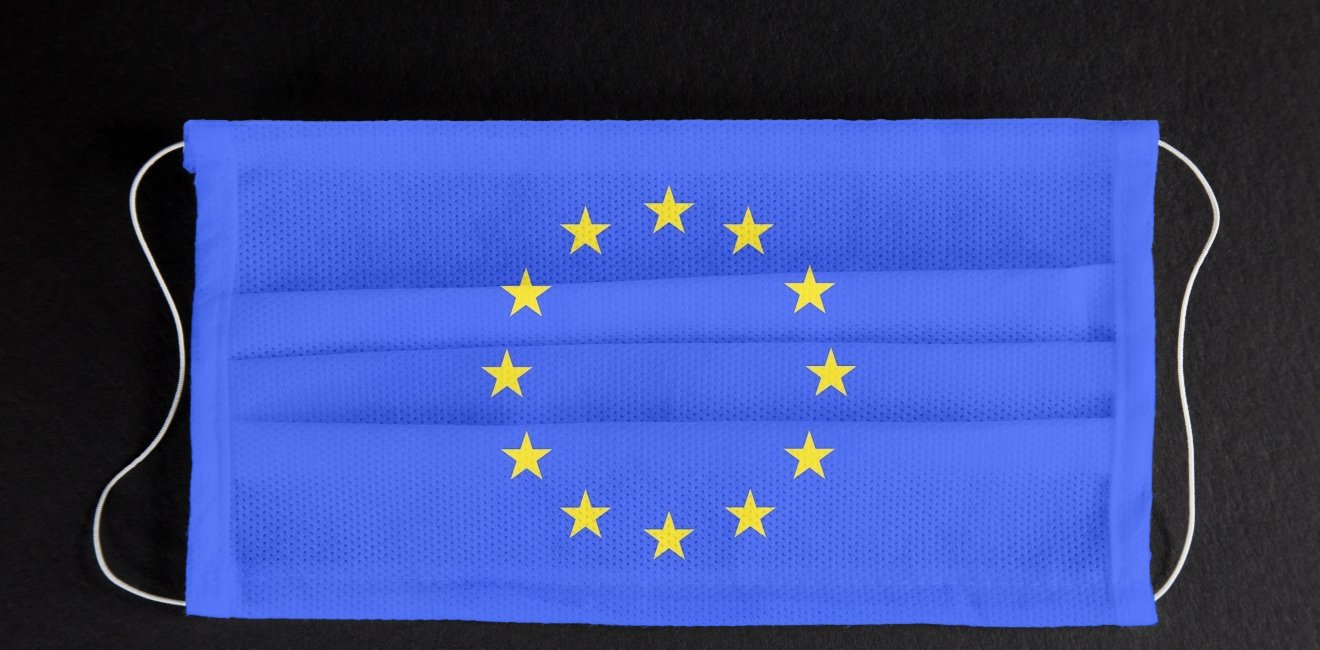This article is part of a series of papers that resulted in the new report:
First Resort: An Agenda for the United States and the European Union
1. Introduction
The US/EU collaboration on health and health security issues has been steadily productive for years. Whether it was working together to support the World Health Organization, standing up the Global Health Security Agenda (GHSA) in 2014, or responding to the Ebola crisis in West Africa in 2014, health security problems have been in existence long before the COVID-19 pandemic, and fruitful cooperation between the US and EU has helped minimize threats and advance health. In the last four years, however, the US has stepped away from international cooperation on health security issues with the EU as well as other partners.
The effects of US withdrawal from cooperating on health security challenges have been detrimental to both the US and EU, but the damage was more pronounced because of the most devastating health security issue of the last hundred years, the COVID-19 pandemic, which has thus far taken more than 1.7 million lives worldwide. Though there are now multiple authorized vaccines to prevent COVID-19 and many more candidate vaccines in development-- an amazing feat of science, not possible for any previous pandemic in history-- there cannot be enough vaccine manufactured and deployed to stop the pandemic for perhaps a year or more. After vaccination becomes routine, it is likely that the virus will remain endemic, and vaccines may need to be adjusted if the virus evolves away from protection by the vaccine.
The health security challenges for the US and EU will thus center around SARS-CoV-2, the virus that causes COVID-19 disease, for years to come. US policy orientation towards international engagement has returned towards their previous state, and so the next four years are likely to bring a renewed interest in tackling COVID-19 as well as other health security issues cooperatively.1 It is now a good time to assess where lasting progress in health and health security can be made through a partnership between the US and EU, and to prioritize areas for action.
2. COVID-19 response
COVID-19 will be a high-priority health security threat for all of 2021, 2022, and likely beyond. Though vaccination will be available in increasing numbers in 2021, the virus will still be evolving, and will require constant vigilance for years to come. It will be important to not “declare victory” or to pick an end date after which lessons may be learned. However, lessons may still be learned, and strategies adapted, even while the COVID-19 pandemic continues.
COVAX, ACT-A, and Advance Market Commitments
The US should participate in the COVID-19 Vaccine Global Access (COVAX) Facility2, joining the other 189 countries which are working to ensure that 92 low- and middle-income nations may access COVID-19 vaccines. As part of that, the Access to COVID Tools (ACT) ACT-Accelerator program is organized into four pillars of work: diagnostics, treatment, vaccines and health system strengthening. Each pillar is vital to the overall effort and involves innovation and collaboration to equitably bring treatment and vaccine options to low- and middle-income countries. The US should also fund the $5B COVAX Advance Market Commitments that should incentivize vaccine production, as well as fund procurement and distribution of vaccines.
US-EU Research initiatives
COVID-19 has exposed numerous gaps in medical, scientific, behavioral, and other kinds of knowledge that should be addressed through cooperative research. A coordinated US-EU plan to address these knowledge gaps will help in the continuing response to the SARS-CoV-2 virus, as well as for future health security threats. Some of the areas where shared work can be productive include the following potential research initiatives.
- Learning from the clinic: During COVID, many hundreds of thousands died before basic medical facts about the disease and potential therapies and their effectiveness were learned. Though a universal healthcare system shortcutted the process of developing clinical knowledge, as seen in the UK Recovery Trial, it was not the only factor that led to increased clinical knowledge. Multiple nations have universal health care and nonetheless struggled with learning from clinical evidence. The US saw some success in its large healthcare systems to learn important clinical information from patients, but as one troubling demonstration of the problem, between 80-100,000 people may have received convalescent plasma as a treatment for COVID-19 before its limited effectiveness became known.3 To address future health security threats, treat patients, and learn from them in order to treat others, there is a critical need to get better data from the clinic much faster in the future. These data systems need to be protected and results need to be shared.
- Behavioral norms and how to introduce public health measures that will be adopted. There is a body of research in this area that should be built upon, as well as longstanding research in how to convince people to take steps to quit smoking or get more exercise. These lessons need to be incorporated better into health systems, and research initiatives are required to better outline what changes can be made on an organizational level, for COVID-19 responses and beyond.4
- Vaccine effectiveness and mixing and matching vaccines. There are dozens of vaccine candidates for SARS-CoV-2, with a variety of different methodologies, and most of them are 2 dose regimens. As vaccination becomes more common, and more vaccines come to market, there will be questions about the effectiveness of mixing and matching doses and effectiveness. It is also likely that a booster will be needed in the coming years (if the virus doesn’t drift enough so that a new vaccine is needed). These questions can begin to be answered by clinical trials that deliberately mix and match vaccine candidates. Some have already begun, but more are needed.
3. Beyond COVID-19
Support the World Health Organization
The biennial budget for WHO is 5.8B, which is paltry in the face of the need for WHO action, and much of that budget is earmarked. The US and EU should work with other nations to increase the budget of WHO to at least 2 times that amount, and work towards a UN resolution to introduce mandatory compliance to pay dues to the organization.5 The politicization of the WHO during the COVID-19 pandemic is another problem that needs to be addressed. It is in no nation’s interest to have a political WHO-- it should be as scientifically and public health driven as an international organization can be. Changes to governance to reinforce this disengagement of political manipulation should be made to support WHO in scientifically sound decision making.
There are also changes that should be considered in the International Health Regulations to better respond to future health security crises. For example, the declaration of a Public Health Emergency of International Concern (PHEIC) may best not be a binary decision. An incremental measure of alarm may better reflect the type of global action needed and may make effective intervention at lower alarm levels more productive.
Support the Global Health Security Agenda (GHSA) 2024
The GHSA vision is “A world safe and secure from global health threats posed by infectious diseases, whether natural, deliberate, or accidental.” Launched in 2014-- just in time to be immediately useful in addressing the 2014 Ebola crisis-- it has 69 member countries. The GHSA 2024 extends the work of the GHSA and includes specific goals for improved performance in measurable target areas by 2024. For example, that more than 100 countries will undergo health security capacity evaluation, national action planning, and resource mobilization, and begin implementing activities and will demonstrate improvements in at least 5 technical areas to a level of ‘Demonstrated Capacity,’ as measured by assessments (e.g., WHO).
Currently, only 10 EU countries are members of the GHSA. Reclaiming public health leadership and shared partnership on health security between the US and EU should lead to all EU countries part of the GHSA24.7 With close collaborations between the ECDC and CDC, this should be part of a “lead by example” campaign that puts measurable health security goals front and center.
Shared Security Responses to Future Health Security Threats
The COVID-19 experience provided an unfortunately good demonstration to adversaries that pathogens can kill many millions of people, damage national economies, degrade military readiness (on a larger level but also to degrade specific military assets, as seen on the USS Theodore Roosevelt).8 Whether this demonstration has been incorporated into adversaries plans is an open question, and one in which the US and EU have a shared interest in determining. The US and EU should evaluate how these events have changed their vulnerability to deliberate biological weapons threats and determine whether preparedness is sufficiently in line with the threat. There are several options for the US and EU to pursue together, to include the following:
- The US and EU should develop a joint paper for submission to the Biological Weapons Convention addressing how the biological weapons threat has changed and options for the states parties to address it, to include how the BWC should be funded and organized so that it can meet the increased need for the treaty.
- The US and EU should consider hosting a summit on the common tools of public health and deliberate disease detection, and where increased attention and investment would prove most helpful. The COVID-19 pandemic has demonstrated that investments in the biological sciences are critical for future preparedness.
- Addressing Misinformation and Disinformation: Misinformation is factually incorrect information, and disinformation is a subset of misinformation that is deliberately spread with the intent to deceive. The World Health Organization has characterized the global spread of COVID-19 misinformation as an “infodemic, which undermines public health measures and leads to unnecessary loss of life.” Misinformation and disinformation can include mischaracterization of the disease or protective measure, false treatments or medical interventions, scapegoating of groups of people, and conspiracy theories about the existence or origin of the pathogen, profiteering, or government response efforts. Disinformation has been tied to the work of private citizens, as well as foreign influence. Actions to diminish the role of disinformation by blocking it, as well as educating the public to understand and correctly categorize disinformation campaigns should be a topic of shared interest to the US and EU, and which goes beyond COVID. A summit and shared work program in this area could yield benefits for COVID-19 response and beyond.
Conclusion
This paper outlines potential areas for the US and EU to collaborate, to address shared health security challenges. Addressing these serious challenges cooperatively will be the most productive and efficient way to save lives-- during the ongoing COVID-19 pandemic, which is likely to be a priority health security challenge for years to come, but also for the many non-COVID health security threats in danger of neglect.
Author


Global Europe Program
The Global Europe Program is focused on Europe’s capabilities, and how it engages on critical global issues. We investigate European approaches to critical global issues. We examine Europe’s relations with Russia and Eurasia, China and the Indo-Pacific, the Middle East and Africa. Our initiatives include “Ukraine in Europe”—an examination of what it will take to make Ukraine’s European future a reality. But we also examine the role of NATO, the European Union and the OSCE, Europe’s energy security, transatlantic trade disputes, and challenges to democracy. The Global Europe Program’s staff, scholars-in-residence, and Global Fellows participate in seminars, policy study groups, and international conferences to provide analytical recommendations to policy makers and the media. Read more

Explore More
Browse Insights & Analysis
First Resort: An Agenda for the United States and the European Union

Enhancing the Transatlantic Trade and Investment Relationship


